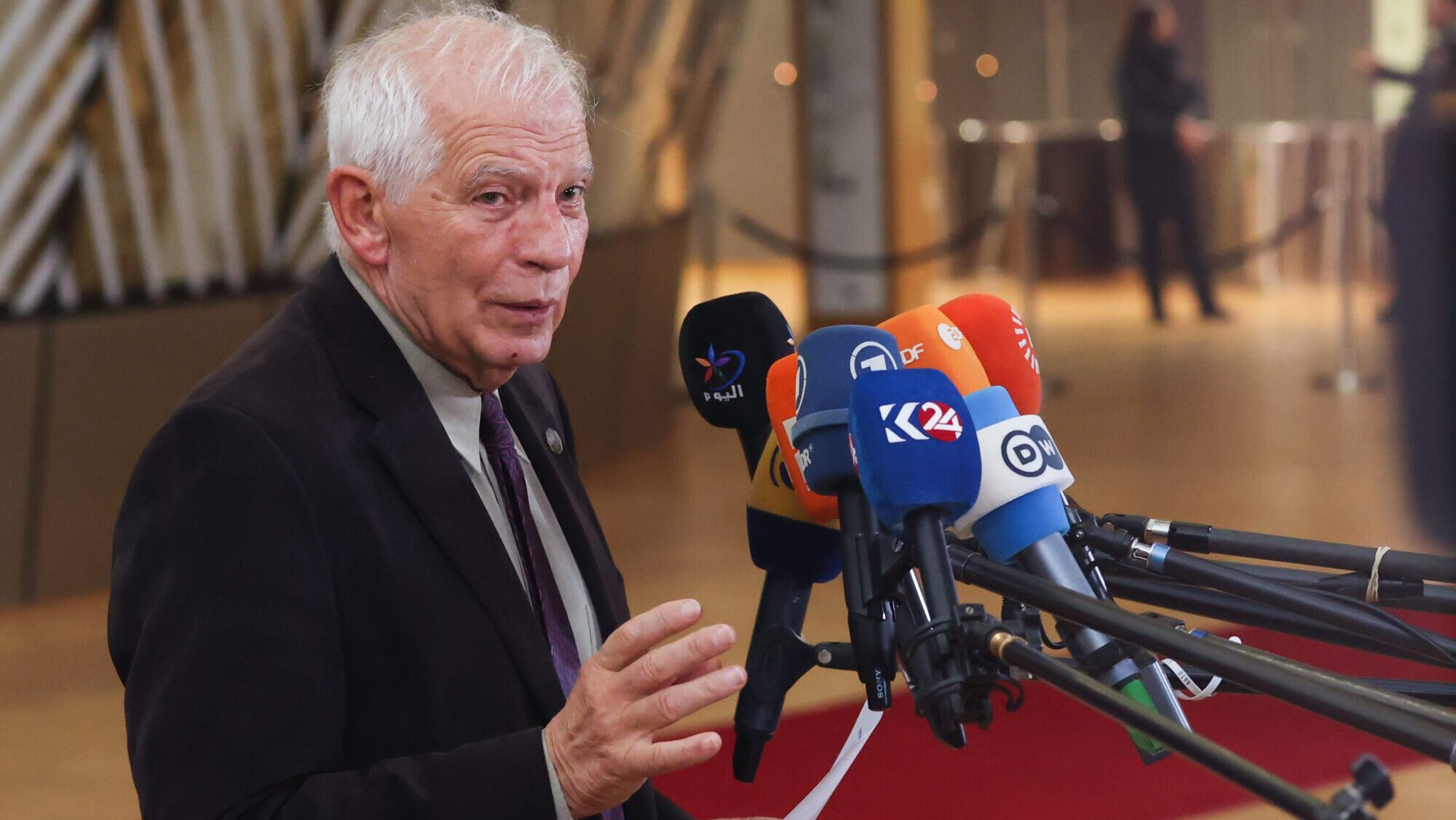
EU High Representative for Foreign Affairs Josep Borrell.
Photo: © European Union
Hamas has been using hospitals and civilians as human shields since the very beginning of its attack on Israel more than one month ago. Such behavior is the terrorist organization’s modus operandi. Despite this, the European Council has said nothing about the use of hospitals until yesterday when it issued a tepid joint condemnation. At the same time, it urged Israel to show “maximum restraint” during its operations inside Gaza.
While coming to an agreement on the appropriate language for joint statements regarding the Israeli war has not been easy among 27 member states of the EU, the Council’s statement—published by the EU’s foreign affairs chief Josep Borrell on behalf of all member states a day before Monday’s foreign affairs meeting in Brussels—says more about the bloc’s lack of agreement than anything else.
It calls for “humanitarian pauses” (not ceasefire) to help deliver international aid, to which Israel has already agreed. It stresses the need for the “immediate and unconditional” release of Israeli hostages from Gaza as well as condemning the terrorist organization’s use of Palestinian civilians as their first line of defense, but urges Israel to refrain from unnecessary civilian casualties:
we urge Israel to exercise maximum restraint to ensure the protection of civilians.
By using the words “maximum restraint,” the statement does nothing more than place the blame for civilian casualties on Israel. But Hamas using hospitals, schools, kindergartens, and churches to hide their bases of operation is nothing new. By this practice, Hamas not only puts innocent Palestinians directly in the line of Israeli fire but also of their own. Consider the Al-Ahli Hospital strike, in which Hamas almost convinced the world that Israel was behind it, but turned out it was their erroneous missile that fell back after being launched directly from behind the site.
Furthermore, reports of Hamas terrorists patrolling the streets to prevent civilians from leaving the encircled Gaza City through the Israeli-enforced humanitarian corridor southward are commonplace, despite Tel Aviv bending over backward to communicate evacuation orders before its strikes.
“This is a battle against terror,” Hungarian Foreign Minister Péter Szijjártó said on Monday in Brussels. Hungary is one of the strongest supporters of Israel and has been adamant about avoiding the word ‘ceasefire’ in any official text. “The success of this operation is not only in the interest of Israel, but the interest of the whole international community, because if this operation is not concluded successfully, then we can’t prevent such a brutal attack from repeating itself in another part of the world,” Szijjártó added.
Despite including the denouncement of Hamas’ tactics, the Council’s statement also adds that the EU “will continue to work closely” with the UNRWA and other agencies within Gaza, despite the growing controversy within the EU institutions about the organization and its apparent role in encouraging terrorism-related activities.
“While Hamas must be fully accountable, there is another body, sadly, that is complicit: the UN,” said Gilad Erdan, Israel’s ambassador to the UN before the Security Council just two days ago. “Many UNRWA workers in Gaza are themselves members of Hamas.”
